Uncategorized
-

-
 Science & Society
Science & SocietyThe ‘Does It Fly?’ podcast separates fact from science fiction
The podcast ‘Does It Fly?’ asks whether the technology of Star Trek, Doctor Who and other popular sci-fi shows could really work.
-
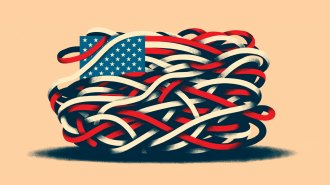 Science & Society
Science & SocietyIs U.S. democracy in decline? Here’s what the science says
Political scientists disagree over how to interpret a slight dip in the health of U.S. democracy.
By Sujata Gupta -
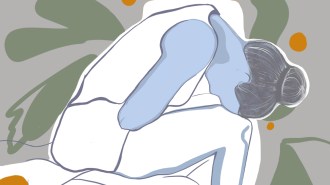 Health & Medicine
Health & Medicine50 years ago, chronic pain mystified scientists
Chronic pain has puzzled scientists for decades, but diagnoses and treatments have come a long way.
By Aina Abell -
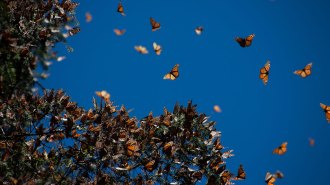 Environment
EnvironmentAn idea to save Mexico’s oyamel forests could help monarch butterflies too
Climate change is putting monarch butterflies’ overwintering forests in Mexico at risk. Could planting new forests solve that problem?
-
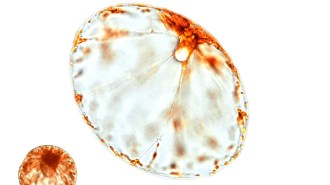 Oceans
OceansHow tiny phytoplankton trek long distances upward in the ocean
Taking in seawater while filtering out dense salts lets unicellular phytoplankton migrate tens of meters vertically toward sunnier seas.
-
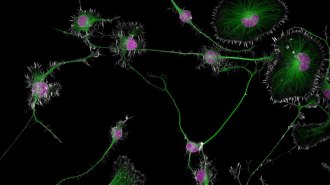 Life
LifeHere are some stellar picks from Nikon’s top microscopy images of 2024
The annual Small World photomicrography competition, now in its 50th year, puts life’s smallest details under the microscope.
-
 Planetary Science
Planetary ScienceThe cataclysmic origins of most of Earth’s meteorites have been found
Just a few smashups in the asteroid belt may account for 70 percent of Earth’s meteorites, limiting what’s known about our solar system’s history.
-
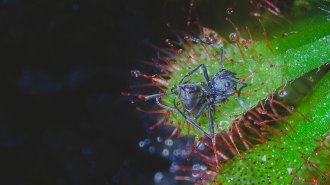 Plants
PlantsCarnivorous plants eat faster with a fungal friend
Insects stuck in sundew plants’ sticky secretions suffocate and die before being subjected to a medley of digestive enzymes.
-
 Planetary Science
Planetary ScienceNASA’s Europa mission is a homecoming for one planetary astronomer
Over her long career, Bonnie Buratti has seen the search for life in the solar system go from a joke to a flagship mission.
-
 Animals
AnimalsAt-home experiments shed light on cats’ liquid behavior
Cats can flow like liquids through tall crevices, but they solidify a bit as they approach short crannies, new research shows.
-
 Neuroscience
NeuroscienceYour brain can perceive subtle odor changes in a single sniff
The speed at which our brain can tell smells apart is on par with color perception, a new sniff device shows.